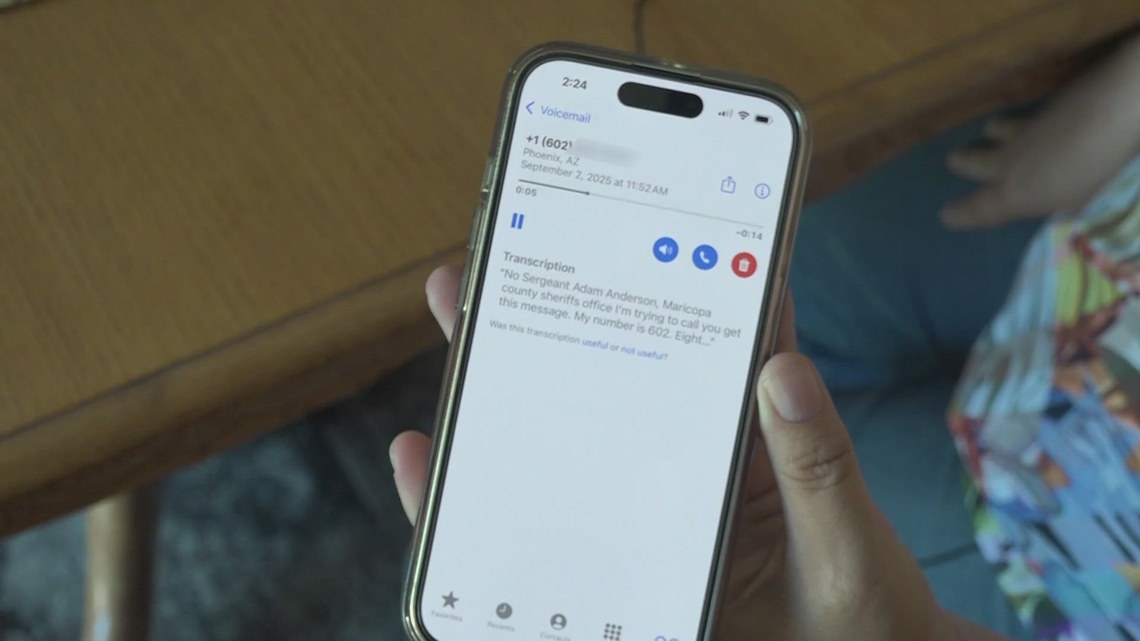An Arizona woman says she was scammed out of thousands of dollars and wants to warn others not to deposit money into crypto ATMs.
PHOENIX — A Valley woman is warning others after she says she lost thousands of dollars in a cryptocurrency scam that started with what appeared to be an official phone call from law enforcement.
When Laura Bergen received a voicemail from someone claiming to work at the Maricopa County Sheriff’s Office, she said she called back immediately.
“This is Sergeant Adam Anderson from the Maricopa County Sheriff’s Office,” the voicemail says.
“At first it seemed really legit,” Bergen said.
The caller sent her a manual for federal grand jurors, telling her she owed money for twice missing jury duty.
Bergen said she felt nervous and scared, worried she would get in trouble. The caller told her that every time she failed to perform jury duty, she owed $4,000.
If she didn’t pay, the caller told Bergen she would be arrested.
“I took it seriously, so I wrote down the address to go to,” she said. “And it turned out it was a convenience store. And something didn’t seem right, but I didn’t really question it. So there was a machine there. It was a Bitcoin machine.”
Before depositing the money, she told the caller she thought it was a scam. She said they insisted that wasn’t the case and warned her that she either had to turn herself in or pay the $8,000 or someone would come to her house and put her in jail for 30 days.
After Bergen deposited the money, she never heard back from the caller.
“And then I knew I was like, ‘I knew it was a scam.'”
It’s an all-too-common story in Arizona, where there are about 600 cryptocurrency ATMs.
“That’s where the fraud happens,” said Detective Mike Finney of the Peoria Police Department. “It gets converted to crypto and then disappears.”
Last year, the FBI estimated that Arizonans lost more than $177 million in cryptocurrency ATM fraud, with most of the victims being elderly people.
“They’re easy to confuse,” Finney said. “They are emotionally distraught and make bad decisions under duress.”
That’s why Finney helped pass a new state law reducing daily transaction limits to $2,000 for new customers, increasing warnings on ATMs, and requiring ATM operators to reimburse fraud victims within 30 days of the transaction.
“It’s huge, because it didn’t exist before,” Finney said. “Basically, everyone was unlucky with that.”
The law took effect late last month, just weeks after Bergen reported being scammed. Now she still has questions.
“How could someone do that to someone else, steal their money, just, you know, just try to scam people out of that money, scare them. I don’t know how people like that can sleep at night,” she said.
Scams like the one in Bergen often go unreported because many victims feel too embarrassed to come forward. Police advise you not to send money if you think you may be targeted. instead, call the police or someone you trust.










